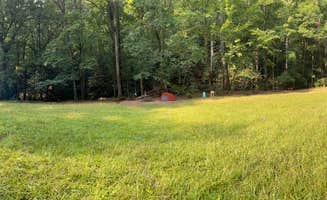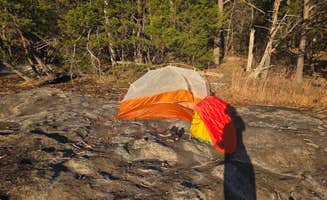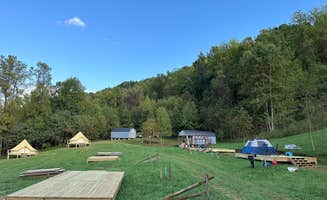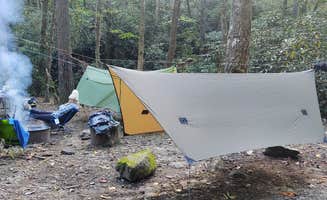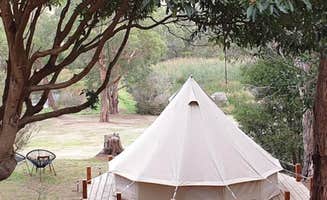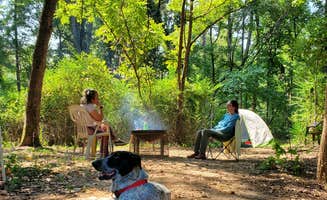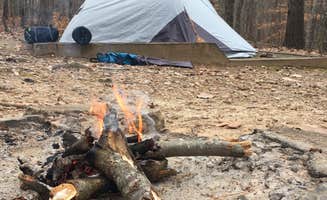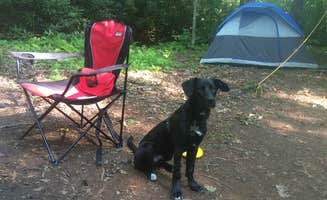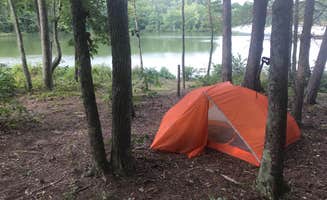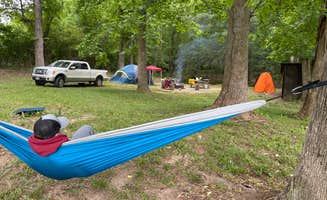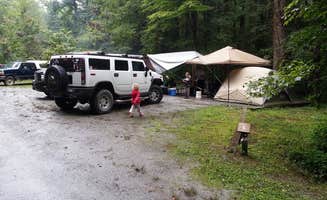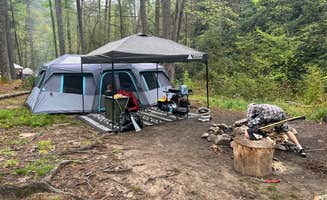Julian Price Park Campground — Blue Ridge Parkway
Older Campground with Great Location
Julian Price Campground is part of the Julian Price Memorial Park, which is along the Blue Ridge Parkway in the northern part of North Carolina. I have heard about this park for many years, so I wanted to finally camp there. It is an older park, and it shows. We stayed at site A4, and I chose this site for a few reasons. It was close to the lake, but unfortunately, we couldn’t see the lake from the site. Many of the sites in the A loop are reservable, and they have been reserved for several weeks(maybe months) in advance. They are the best sites as far as seeing the lake and sometimes because they are larger. The worst part I discovered about sites in the A loop is that you can hear traffic from the Blue Ridge Parkway all day long except for two to three hours in the middle of the night(about 1:30 to 4:30). On average, you can count on about twenty-five vehicles every five minutes(I know because I counted). It doesn’t help that the parkway is under construction and the road is gravel, which makes the sounds of vehicles even louder. The restrooms in A loop are old and need updating. There are no showers in A loop. The only showers are between B and D loops, which are on the other side of the Blue Ridge Parkway. On the positive side, the showers in a new bath house, and they are private shower/restroom units. We rode through all of the loops to see what the other sites were like, and some of the sites are seldom used if the picnic tables and surrounding vegetation is any indication. Some of the picnic tables are covered in moss. Those were mostly in the sites that were small or sloped. For that reason, it is a good idea to look at the photos on the website for each site before reserving. Many of the sites are walk-in sites and you can set up before the 3:00 time for reservable sites. As far as activities, there is no swimming, but fishing is allowed. There is also a boat ramp, and you can rent canoes, kayaks, and SUPs. The lake is hatchery supported, and I did witness someone catching a fish as we walked along the lake trail. While we were in this area, we saw several small deer, including one that came through our campsite. Our campsite was spacious, and it had a concrete picnic table, a fire ring, a lantern pole, and a tent pad. The tent pad needed some maintenance since the dirt had washed onto it and made it slightly sloped. Not until later did I discover that there was a tall dead tree next to our tent. Only the top part was dead, but it could be a potential danger. The site next to ours was sectioned off because of a dead tree. If you are staying in A loop, I give it two stars, especially since the sites and bath house need maintenance, and because of the road noise. If you are staying in B or D loop, I would give it three or four stars. The sites in E loop are mainly for RVs and have less shade. One section in the A loop also is an open field and has limited shade. Overall, it’s not a bad choice for a campground, but it needs updating. What it has going for it is location. It is along the Blue Ridge Parkway, and Cone Memorial Park is down the road, which is a great destination in itself. There are lots of hiking trails and the beauty of the mountains is spectacular.


